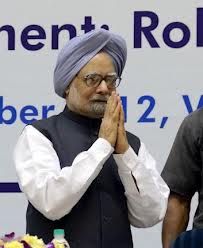 New Delhi, October 11: Prime Minister Manmohan Singh on Wednesday said the government was mulling over incorporating provisions in the Prevention of Corruption Act to penalise bribe-givers as well, besides giving the law more teeth to tackle corporates indulging in corrupt practices.
New Delhi, October 11: Prime Minister Manmohan Singh on Wednesday said the government was mulling over incorporating provisions in the Prevention of Corruption Act to penalise bribe-givers as well, besides giving the law more teeth to tackle corporates indulging in corrupt practices.
The amended law would give honest public servants more protection, he said, addressing the 19th Conference of the CBI and State Anti-Corruption Bureaux here.
“We are considering amendments to the Act not only in view of the judicial rulings on its provisions but also with the purpose of filling certain gaps in the legislation and bringing it in line with the current international practice.”
Elaborating, the Prime Minister said: “A clear and unambiguous definition of the term ‘corruption’, covering both supply and demand sides, is being sought to be provided. Experience has shown that in a vast majority of cases, it is difficult to tackle consensual bribery and the supplier of the bribe goes scot-free by taking recourse to the provisions of the Act. This would be taken care of in the proposed amendments.”
Pointing out that big-ticket corruption was mostly related to operations by large commercial entities, he said: “It is, therefore, also proposed to include corporate failure to prevent bribery as a new offence on the supply-side. We are also examining how the Act can be amended to protect honest public servants more effectively.”
The Prime Minister, however, cautioned that a “mindless atmosphere of negativity and pessimism” over the issue of corruption was damaging the nation’s image and affecting the morale of the executive. “We need to ensure that even while the corrupt are relentlessly pursued and brought to book, the innocent are not harassed. The importance of making a distinction between bona fide mistakes and a colourable exercise of power in investigation of corruption cases cannot be overemphasised.”
Referring to challenges faced by law enforcement agencies, Dr. Singh said newer modi operandi were being adopted for corrupt activities as faster economic growth over the last two decades had led to newer opportunities for corruption.
“Different sectors of economy follow development models that are increasingly becoming more and more sophisticated. Therefore, in many cases, it would be difficult for the investigating agencies to reach the right conclusions without a firm grasp of the complexities involved in the formulation and implementation of economic policy… I would urge the CBI and other anti-corruption agencies to feel free to engage professionals who have the expertise which can assist them in conducting an impartial enquiry in complex cases.”





Comments
Add new comment